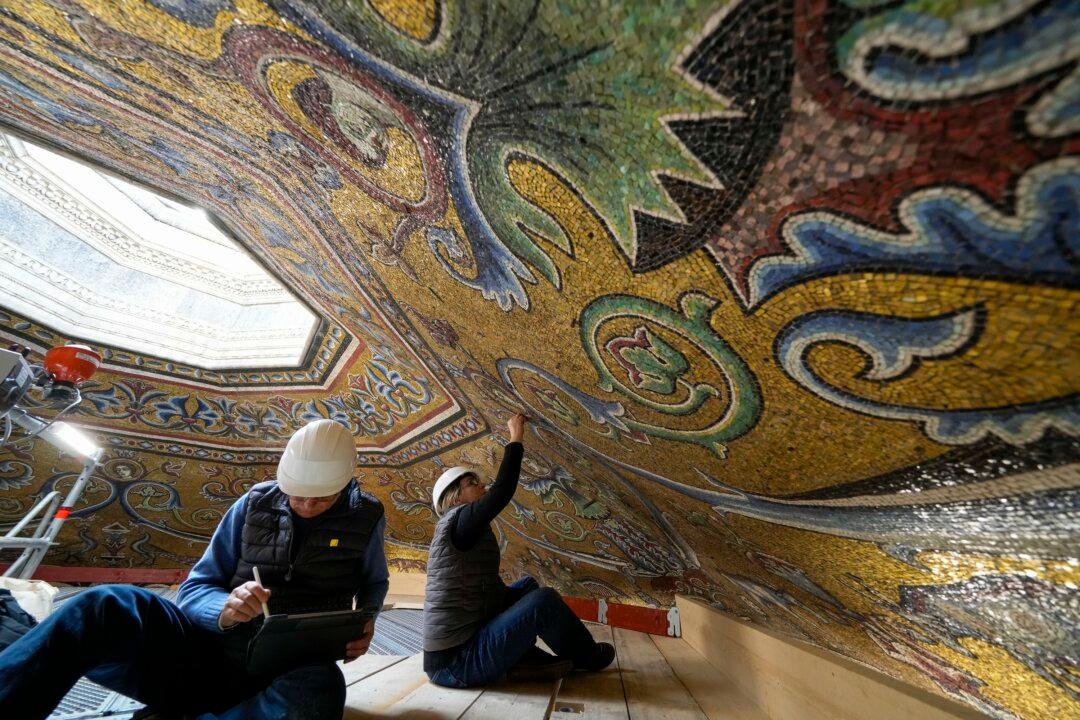FLORENCE, Italy—Visitors to one of Florence’s most iconic monuments—the Baptistry of San Giovanni, opposite the city’s Duomo—are getting a once-in-a-lifetime chance to see its ceiling mosaics up close thanks to an innovative approach to a planned restoration effort.
Rather than limit the public’s access during the six-year cleaning of the vault, officials built a scaffolding platform for the art restorers that will also allow small numbers of visitors to see the ceiling mosaics at eye level.





